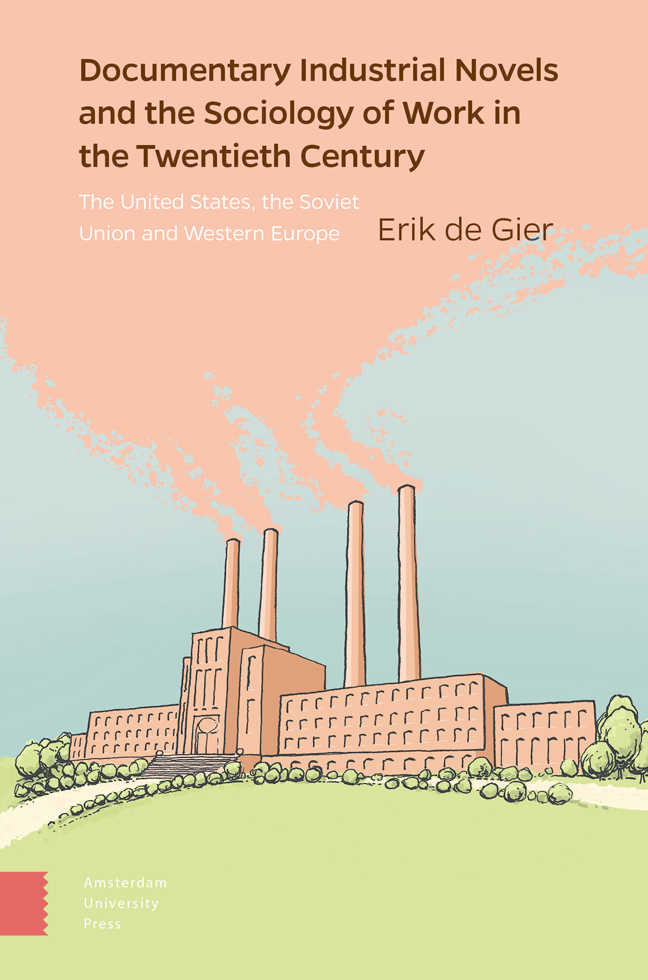 Documentary Industrial Novels and the Sociology of Work in the Twentieth Century
Documentary Industrial Novels and the Sociology of Work in the Twentieth Century Published online by Cambridge University Press: 20 February 2024
Abstract
French Modernist industrial novels are considered in this chapter in the context of the large-scale introduction of American production techniques in French industry between the world wars. Another important factor was two significant successive waves of migration, one inside France from the south to the north and one from abroad, mainly from (former) colonies to France to fulfil the growing need for unskilled workers in industry. One significant consequence of the introduction of American production techniques was the issue of worker alienation. Another issue was the unequal treatment of immigrant workers as compared to workers of French origin on the shopfloor. Both problems play a significant role in the industrial novels dealt with in this chapter written after World War II.
Keywords: Taylorism (OST), Fordism, worker alienation, working conditions, immigration, French neo-realist industrial novels
Introduction
A few years after World War II the collected writings on La Condition Ouvrière (‘The Condition of the Worker’) by French philosopher Simone Weil were published (Weil, 1951/2002). Although the author herself had died in exile in southern England in 1943, her ideas concerning overcoming worker alienation strongly influenced not only Italian entrepreneur Adriano Olivetti and Italian writer Ottiero Ottieri, as we saw in the previous chapter, but also French authors of post-war industrial novels. In France, the genre of the naturalist or realist industrial novel had been known for quite a long time since Emile Zola's seminal industrial novel Germinal, written in the 1880s. And as in the United States and Weimar Germany, there were also some workers themselves who published novels or poems. Industrial sociologist Georges Friedmann mentions in his Traité de Sociologie du Travail the following authors and books: G. Navel, Travaux (1945); D. Mothé, Journal d’un Ouvrier 1956–1958 (1958), and A. Andrieux & J. Lignon, L’Ouvrier d’Aujourd’hui (1960) (Friedmann & Naville, 1962, pp. 384, 423, 425, vol. 2). Other notable proletarian writers include Eugene Dabit, Henry Polaile, André Philippe, Maurice Lime, and Jean Pallu (Friedmann, 1947, p. 90).
It is in particular Georges Navel's novel that may be considered among the first post-war neo-realist French industrial novels. As Simone Weil did in a more analytical and philosophical way in La Condition Ouvrière, Navel expressed in his novel Travaux his personal experiences as a worker. It is remarkable that in France the genre of the Modernist industrial novel remained popular in the decades thereafter.
To save this book to your Kindle, first ensure [email protected] is added to your Approved Personal Document E-mail List under your Personal Document Settings on the Manage Your Content and Devices page of your Amazon account. Then enter the ‘name’ part of your Kindle email address below. Find out more about saving to your Kindle.
Note you can select to save to either the @free.kindle.com or @kindle.com variations. ‘@free.kindle.com’ emails are free but can only be saved to your device when it is connected to wi-fi. ‘@kindle.com’ emails can be delivered even when you are not connected to wi-fi, but note that service fees apply.
Find out more about the Kindle Personal Document Service.
To save content items to your account, please confirm that you agree to abide by our usage policies. If this is the first time you use this feature, you will be asked to authorise Cambridge Core to connect with your account. Find out more about saving content to Dropbox.
To save content items to your account, please confirm that you agree to abide by our usage policies. If this is the first time you use this feature, you will be asked to authorise Cambridge Core to connect with your account. Find out more about saving content to Google Drive.